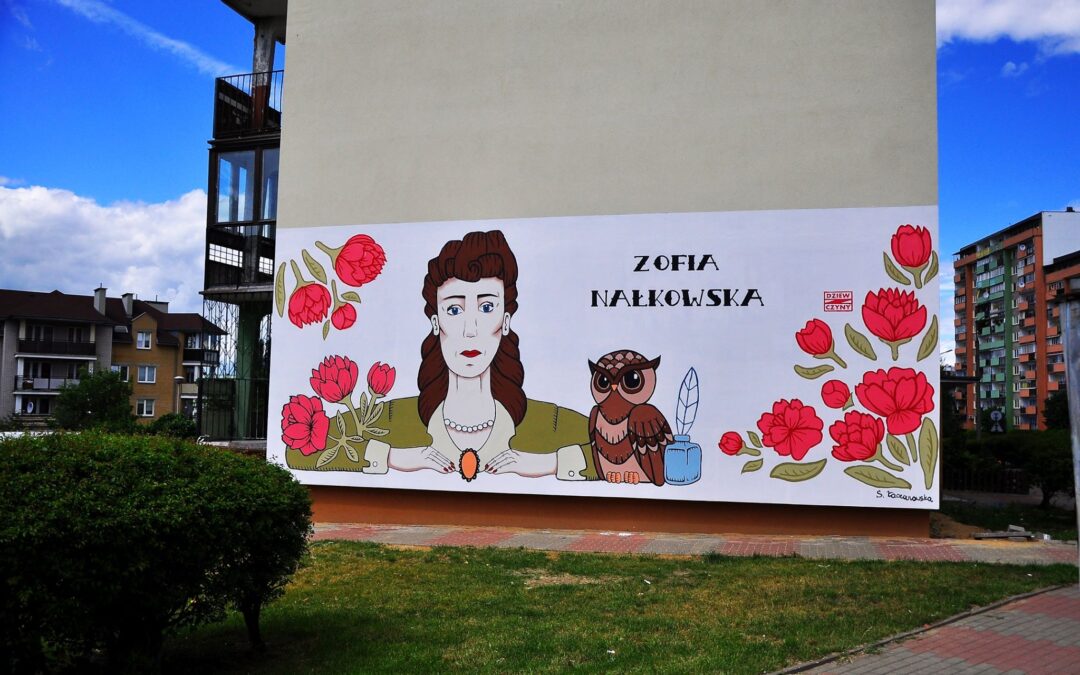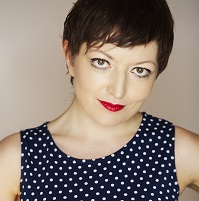By Kasia Lech
Discussions on Polish literature in the English-speaking world have largely focused on male writers. A recent article published by Notes from Poland, which looked at the nine Polish works to feature in an international list of books “you must read before you die” was no exception: all nine were written by men.
This is partly because for a long time the Polish voice has been imagined as tantamount to the fight for national liberation, which, as Maria Janion noted, has been predominantly male. My alternative selection gives a rundown of exciting Polish female writers encompassing a variety of genres, offering snapshots of women’s voices throughout Poland’s complex history.
The majority of them have been translated into English, but two have not. This reflects the translation gap in comparison to texts written by Polish male writers, but is also meant to induce curiosity, which maybe, just maybe, will lead someone to consider translating more Polish works.
Limitations of space mean that some worthy writers had to be left out. I decided to spotlight the authors who may be less known in English-language contexts: Zuzanna Ginczanka over Nobel laureate poet Wisława Szymborska, for example.
Nevertheless, as a good Polish saying says, rules exist to be broken, or at least stretched. So, while I cannot name all the writers I wish, I would like to dedicate this article to other brilliant female authors: Gabriela Zapolska, Zofia Posmysz, Manuela Gretkowska, Inga Iwasiów, Martyna Majok, Maria Dąbrowska, Małgorzata Musierowicz, Joanna Chmielewska, Maria Pawlikowska-Jasnorzewska, Stanisława Przybyszewska, Maria Konopnicka, Brygida Helbig, Halina Poświatowska, Zofia Stanecka, Irena Tuwim… Google them.
A Transaction, or an Account of the Entire Life of an Orphan Girl by way of Plaintful Threnodies in the Year 1685, by Anna Stanisławska, 1685 (a novel in verse)
Anna Stanisławska’s autobiographical work is an account of her life: love, oppression, and personal struggle, but also her encounter with and perspective on Polish history’s most important events and figures.
It is also a story of female empowerment. Stanisławska tells the story of her oppressive marriage to Jan Kazimierz Warszycki (the castellan – a territorial official – of Kraków) and how she – with royal intervention – ends it, regaining her life, dignity, and happiness.
It is available in English in a brilliant translation by Barry Keane (with commentary) which conveys the rawness and honesty of Stanisławska’s voice. Lines like: “Loyalty is no longer due / When you’ve been beaten black and blue!” could be easily used on a #metoo protest sign.
Poetry by Zuzanna Ginczanka, 1930s/1940s
Zuzanna Ginczanka, born in Kyiv, was a multilingual Polish-Jewish artist of the interwar period. Her poetry explores female Polish-Jewish physical, physiological, and sensual experience.
The most famous of her poems Non omnis moriar – here in translation by Nancy Kassell and Anita Safran – was probably written in 1942 after she was denounced by Zofia Chominowa, a caretaker of the house where she was hiding, and arrested by the Nazi Germans.
Non omnis moriar, used as evidence in a court case against Chominowa after the war, is a deeply ironic and bitter response to Holocaust, but also to her own struggles to be recognised as a Polish poet.
Despite professional acclaim from her contemporaries, Ginczanka was trapped in antisemitic stereotypes. She escaped the 1942 arrest, but was killed in Kraków in 1944 by the Germans. Largely ignored until the 1990s, her poetry gained attention thanks to Izolda Kiec and Agata Araszkiewicz.
Some of her works are available in English. You can also immerse yourself in watching and listening to the rhythms of a passage from her poem Miłość (Love) performed by the ensemble of Teatr Narodowy (Polish National Theatre) in Warsaw in Polish and Polish Sign Language.
Medallions by Zofia Nałkowska, 1946 (novel in prose)
This collection of eight short stories, translated into English by Diana Kuprel, is accompanied by a powerful and famous motto: “Ludzie ludziom zgotowali ten los” (People made this fate for other people).
Based on Nałkowska’s participation in the Polish investigations of the Nazi crimes and on witnesses’ testimonies, Medallions gives an account of events during World War II in Poland. The horrifying facts are contrasted by Nałkowska’s distanced, documentary-like, language.
“The Adults and Children of Auschwitz” is a must-read for anyone trying to understand the trauma of World War II.
Foreign Bodies by Julia Holewińska, 2010 (a play in prose that sometimes rhymes)
Julia Holewińska’s play – the recipient of the prestigious Gdynia Drama Award – is set in pre-1989 and post-1989 Poland, alternating between both times. It tells the story of Adam, a hero of the Solidarity movement.
After the fall of communism in 1989, Adam changes his sex and becomes Ewa. However, Ewa is recognised neither by her family nor Solidarity. Ewa as Adam is married and has a son, but he refuses to call her a mother.
Holewińska’s play explore transgenderism and transsexualism and, in broader sense, aspects of performativity of gender and writing women out of Polish history. It has been performed in Poland, Ireland, and Germany, amongst others.
Eminent Polish theatre translator Artur Zapałowski worked on its English-language version, which was published in a larger anthology of Polish contemporary plays created by Krystyna Duniec, Joanna Klass, and Joanna Krakowska.
Snow White and Russian Red by Dorota Masłowska, 2002 (prose but not prose)
Dorota Masłowska was a teenager about to take her final secondary school exams when she wrote Wojna polsko-ruska, subsequently translated into English by Benjamin Paloff. It gives a platform for stories of marginalised youth immersed in parties, drugs, and sex.
The central character, Nails (or Silny, literally “Strong one” in the original), lives with his mother and tries to find himself in (absurd) Polish socio-political realities. The language – which on the one hand appears as Silny’s stream of consciousness and on the other plays with form – is a unique element of the book, and of Masłowska’s style in general.
"An aggressive young thug has issues with his girlfriend and spends several chaotic days in a haze of drugs and violence."
Wojna polsko-ruska (Snow White and Russian Red) (2009) pic.twitter.com/0TIxeLe12N
— Lauren Rosewarne (@LaurenRosewarne) July 16, 2020
She is now a recognised and multi-award-winning author, and her debut novel has been translated into a number of languages. It received the esteemed Polityka Passport cultural award in 2002, and was made into a film by Xawery Żuławski in 2009.
A Piece on Mother and Motherland by Bożena Keff, 2008 (multi-form work that includes verse, prose, poetry, libretto, and more)
Polish-Jewish writer Bożena Keff brings together various forms and myths – from Greek myths to Tomb Raider and Tolkien’s The Lord of the Rings – to deal with an oppressive relationship between mother and daughter, between a person and their motherland, and Polish and Jewish.
All these are underpinned by trauma. The mother in Keff’s text is a Holocaust survivor. She identifies herself through her personal and national suffering, and her daughter through the lack thereof.
Keff’s Piece was partly inspired by Art Spiegelman’s comic Maus and partly by her own biography. It has been adapted to stage by Polish famous directors Marcin Liber (2010) and Jan Klata (2011), nominated for the Nike Literary Award, and translated to many languages including English (by Benjamin Paloff and Alissa Valles).
Drive Your Plow Over the Bones of the Dead by Olga Tokarczuk, 2009 (novel in prose)
Olga Tokarczuk, the winner of the 2018 Nobel Prize in Literature, needs no introduction. Tokarczuk’s books are well known and multiple-award-winning across different countries and linguistic contexts as both literary works and as translations, including the Man Booker International Prize for Flights, translated by Jennifer Croft.
Drive Your Plow (the title comes from a poem by William Blake), translated into English by Antonia Lloyd-Jones, is underpinned by vegan and feminist principles – an approach which integrates the oppression of animals into the analysis of patriarchal culture. It focuses on an elderly village woman and poetry lover, Janina Duszejko, and her involvement in an investigation of murders on local hunters.
The novel was adapted as a film titled Spoor by Agnieszka Holland (2017).
Ciemno, prawie noc (Dark, Almost Night) by Joanna Bator, 2012 (novel in prose)
Set as a crime or mystery story, Ciemno, prawie noc is a study of a transgenerational trauma rooted in dark history of Wałbrzych in southwestern Poland. A German city until the end of World War II, it became Polish in 1945, but many of its German residents remained. After the post-1989 transition of the Polish economy, it had its coal mines closed, leading to a deep crisis, particularly felt through poverty and social exclusion.
The novel’s central character is Alicja Tabor, who returns to her home city and her post-German house to investigate mysterious disappearances of children. The book, which oscillates between contemporary Poland and Wałbrzych’s and Alicja’s painful histories, won the prestigious 2013 Nike Literary Award and was a semi-finalist of the ANGELUS Central European Literature Award. Its 2019 film adaptation by Borys Lankosz is available on Netflix in some countries.
Another scene from the film "Dark, almost night" (#Ciemnoprawienoc) has been filmed at #KsiążCastle, taking us back to the time when the Red Army stormed into the Castle. The scene depicts the burning of furniture, books on the Castle terraces.#poland @WalbrzychMM #polishcinema pic.twitter.com/jv3Gxb1uve
— Zamek Książ (@Zamek_Ksiaz) April 26, 2018
Pucio by Marta Galewska-Kustra, 2016 (prose)
The Pucio series – books and games for the youngest children (0-6) – tells the story of the toddler Pucio and his family. Pucio deals with everyday challenges, emotions, and people in his life.
The uniqueness of the collection is in how it facilitates children’s speech development. Marta Galewska-Kustra is a speech therapist and has a PhD in pedagogy. Pucio’s consecutive parts build from onomatopoeic sounds to full stories.
The books have been translated into several languages including German, Czech, and Croatian. As a mother of a bilingual child, however, I can confidently say there is no equivalent in the UK bookshops. Pucio as the final book on this list speaks to the meta-level of my selection.
For a long time in Europe’s history, children’s literature was the main platform for female voices to be heard. I want to end by emphasising my resistance to the idea that children’s literature is not a serious form. Such a lingering stereotype is part of the patriarchal tradition that all the other texts featured here challenge.
Main image credit: Gender Studies UW/Facebook. Author photo by Tomasz Lazar.





















